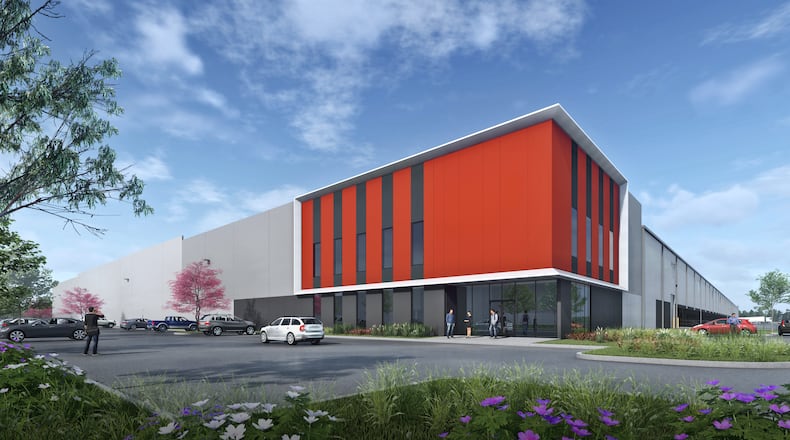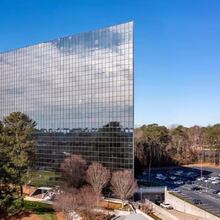Metro Atlanta is known for its sprawl, but industrial developers are redefining those limits as they search for cheap and available land at the region’s edges.
The city and surrounding counties experienced record-setting industrial development in recent years. While construction is slowing down due to economic headwinds and the glut of new buildings, industry experts say developers and warehouse tenants are willing to travel longer distances to set up shop.
“If you look out every interstate corridor, we’re seeing development continue to push further and further out,” said Todd Barton, Senior Vice President in real estate services firm CBRE’s industrial properties group in Atlanta.
Nearly 16 million square feet of industrial space was under construction at the end of March, a 56% decrease from the same time last year, according to data from CBRE. Central Atlanta, the airport and the Ga. 400 corridor account for only 1.4% of current construction, leaving the vast majority of active projects outside the city limits along the region’s bustling interstates.
Large warehouse projects that need large plots of land don’t have many options close to the city, especially given the feverish development of recent years, said Stewart Calhoun of real estate services firm Cushman & Wakefield’s capital markets group.
“That’s the only place you can find land to build a large bulk facility. If you’re building a million square feet, you can’t find that kind of land close to the city,” Calhoun said. “... Supply constraints are the greatest driver of commercial real estate value.”
While Atlanta’s office market has set records for vacant space in the wake of the COVID-19 pandemic, the industrial market has been going gangbusters. Since the pandemic disrupted supply chains, developers have not been able to build new warehouses for logistics and distribution centers fast enough.
The industrial sector has seen positive absorption — a metric measuring the health of real estate — every financial quarter since 2021. In contrast, the office market’s absorption has been negative the past five quarters.
The frenzied activity is beginning to slow down, primarily due to the number of new warehouses that have come online but have yet to snag tenants. About 9.4% of metro Atlanta’s industrial space was vacant in April, according to CBRE, and developers have taken notice, cutting back on new warehouse projects.
“There’s no question that absorption has dropped relative to where we were peaking two years ago,” Calhoun said. “However, there’s still generally a sense of optimism and balance in the market, or at least in most of our submarkets.”
South of Atlanta, Henry County is still abuzz with industrial activity. A roughly 500,000 square-foot warehouse along I-75 at The Cubes at Locust Grove received its construction financing in early May. T.J. Sullivan of Cushman & Wakefield helped broker the deal on behalf of The Cubes’ developers CRG and Heitman but declined to provide specific financial terms.
“There is still construction financing out there,” he said. “It’s just for the right submarkets and for experienced developers.”
Credit: Google Earth
Credit: Google Earth
While Henry County has a large industrial sector, some gigantic warehouse proposals even farther into Atlanta’s exurbs have caused tension among communities not used to these facilities in their backyards. A 747,000 square-foot warehouse and office complex pitched for property near Lake Lanier in Buford sparked public backlash during local meetings.
“The idea of messing up that whole area down there with a bunch of damn warehouses just irritates the snot out of me,” Buford resident Frank Compton said May 6 during a Buford Board of Commissioners meeting, according to the Gainesville Times.
The commission ended up voting to approve two rezoning requests by Trammell Crow Co. for the 75-acre property.
About the Author





